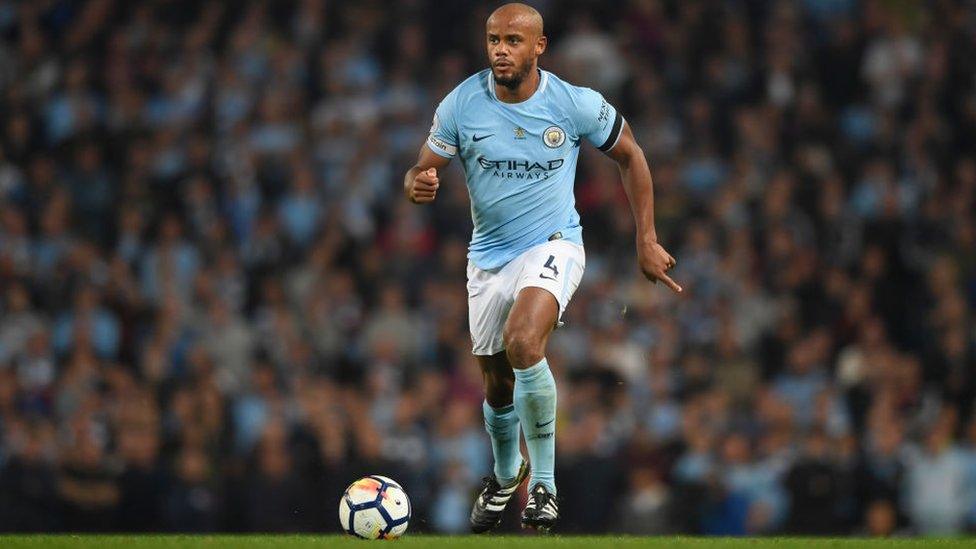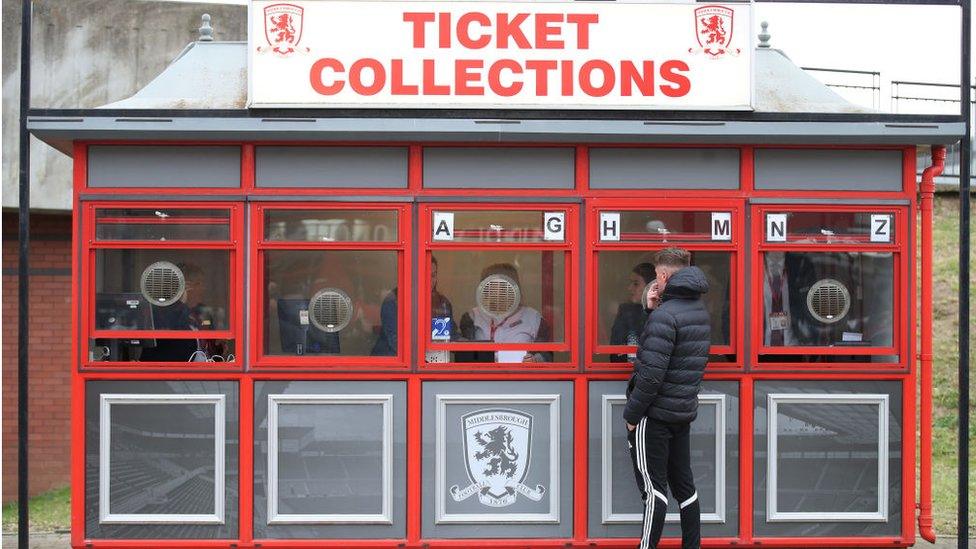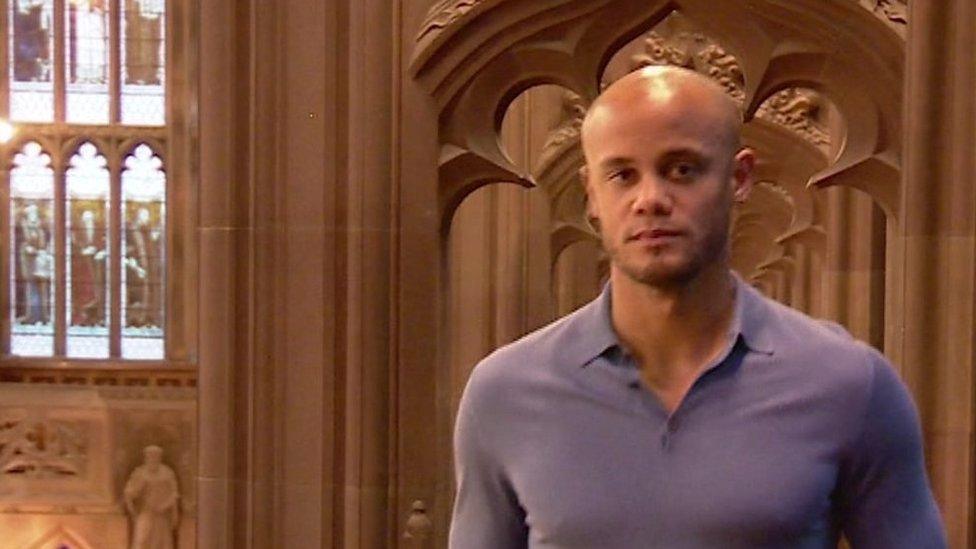Cut Premier League ticket prices, urges Man City captain
- Published
- comments

Manchester City captain Vincent Kompany has urged Premier League football clubs to cut ticket prices for fans.
The two-time Premier League winner said fans helped create "a lot of atmosphere" at matches helping clubs sell the TV rights.
"Use that competitive advantage to lower the price for the fans," he said.
Kompany's advice stems from his recent dissertation on the topic for his Masters in Business Administration, which he graduated from last month.
Man City tops football financial power list
Footballer Kompany graduates with MBA - BBC News
What's behind the $6bn global trade in footballers?
BBC Sport's Price of Football study 2017
He told the BBC Radio 5 live's Wake Up to Money programme that it was for business reasons that he wants to see the cost of a ticket reduced as part of the Premier League's long term strategy.
Kompany's research - based on speaking to 25 fellow elite footballers - concluded there was "a real financial value and benefit in fostering home advantage".
"The study concluded that you get better home advantage depending on the atmosphere that you can create within your facilities, and that is linked to the people who enter your stadiums.
"Those that live for the club, and are probably more attached to the club than anybody else. But those are probably not always the guys who can afford it," he added.

The Premier League is less reliant on ticket sales than European rivals
According to the recent Annual Review of Football Finance by Deloitte, the proportion of Premier League revenues that come from matchday ticket sales has fallen from 29% in 2007/8 to a projected 15% in the 2017/18 season.
When compared to the rest of Europe's top leagues, in 2015/16 the Premier League was less reliant on ticket sales (17% of revenues) than Spain (20%) and Germany (19%), but more so than Italy (11%) and France (11%).
In that season the television revenues in England's top division were more than double that of its nearest rival, Spain's La Liga.
Kompany said because the Premier League was generating two or three times the revenue of the other top five leagues in Europe from TV, it should focus on this.
He said this meant creating "the best atmosphere in the stadium; meaning the right people in the right place."

Vincent Kompany graduated with a Masters in Business Administration last month
If the Premier League did not cut ticket prices, he warned it could reach "breaking point" by squeezing too much out of its home fans.
"I think you can use a logic to say you can generate more revenue in the long term, if you can make a product that is the most authentic that exists in the world, then use your marketing powers to sell it across the world and make more revenue that way," he said.
He noted generally clubs performed better on their home turf.
"For every pound that you lower the ticket price, if you can recover it in that home advantage, you maybe won't have a loss," he said.
Kompany also noted that as the Premier League extended into relatively untapped markets such as China, India, Africa it would be able to boost revenues by charging more for overseas tickets there.
"They'd just come and spend £400 a ticket, it's nothing for them because it is a once in a lifetime experience, like going to an NBA or NFL game."
Premier Power
Competition within the Premier League makes it more difficult for an individual top team to be price-chopping trendsetters, with big differences between the clubs on how reliant they are on gate receipts.
Around 29% of Arsenal's revenues came from ticket sales in 2015/16, but at Kompany's own club, Manchester City, they made up just 13% of the total.
Kompany says that is why the Premier League needs to act.
"It is a difficult decision to make unless the clubs make it together. Once they are aligned [In the Premier League] it is completely possible, and adds value to the league worldwide."
The Premier League says that more than half of its tickets sold this season have cost fans less than £30.
Kompany's conclusions, made from research that included interviews with the likes of Thierry Henry and Frank Lampard, are that it is in the Premier League's interests for the proportion to be higher than that.
BBC Sport's 2017 Price of Football study, released in November, found more than 80% of ticket prices in the Premier League were either reduced or frozen for the 2017-18 season.
Average season ticket prices across English football's top flight are at their lowest levels since 2013, having fallen for the second consecutive year following a record £8.3bn global TV rights deal signed last season.
However, a poll of young adult football fans conducted as part of the study suggested the cost was putting them off attending games.
The study, which has been running for seven years, requested information from 232 clubs across England, Wales, Scotland, Northern Ireland and Europe.
To hear the full interview with Vincent Kompany, download the Wake Up to Money podcast here.